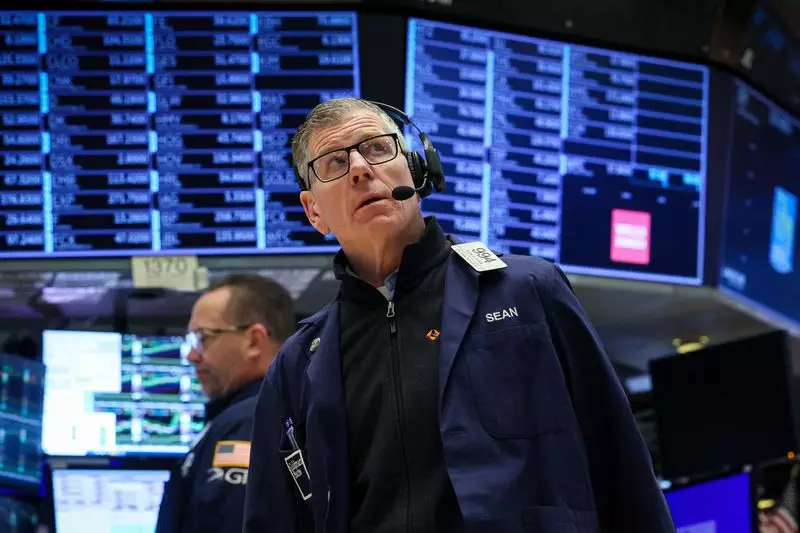The recent escalation in the Middle East conflict, specifically with Israel launching an attack on Iranian soil, has had a significant impact on U.S. stock index futures. This tit-for-tat exchange between the two arch foes has sparked fear and uncertainty among investors, leading them to turn risk-averse. Analysts believe that the intention behind the attack was not to inflict large-scale damage, but the mere fact that such an event occurred has sent shockwaves through the financial markets. Hasnain Malik, head of equity research at Tellimer, stated that the likelihood of a full inter-state war remains very unlikely, but the tension between the two nations has heightened considerably.
Following the reports of the Middle East conflict escalation, U.S. stock index futures saw a decline in premarket trading. The CBOE Volatility index, often referred to as Wall Street’s “fear gauge,” spiked to its highest level in more than five months, reflecting the apprehension and unease among investors. Additionally, Netflix, a leading streaming service provider, experienced a 6.3% drop in its stock price after the company forecasted current-quarter revenue below estimates. This lackluster second-quarter forecast also had a ripple effect on other streaming services providers such as Walt Disney and Roku, which saw their shares decline by 1.3% and 1.5%, respectively.
The recent economic data and comments from Federal Reserve officials have hinted at the likelihood of the central bank keeping borrowing costs unchanged in the near future. This revelation surprised investors who were anticipating a rate cut, leading to a sell-off in the equities market. The S&P 500 and the Nasdaq closed lower for the fifth consecutive session, reflecting the concern over the Fed’s stance on interest rates. Money markets have since adjusted their expectations, now pricing in about 40 basis points of cuts from the central bank, down from the 150 bps seen at the beginning of the year.
In response to the market uncertainty, most megacap growth stocks, including Apple, Nvidia, Meta Platforms, and Tesla, experienced a decline in their share prices. This broad-based sell-off was driven by the shift in investor sentiment and the reassessment of future rate cuts by the Fed. However, amidst the market turmoil, shares of Paramount Global surged by 10.7% after reports emerged that Sony Pictures Entertainment and Apollo Global Management are in discussions to make a joint bid for the company. This potential acquisition deal provided a glimmer of hope for investors amid the prevailing uncertainty in the financial markets.
The escalation of the Middle East conflict has had a domino effect on U.S. stock index futures, leading to increased volatility and a risk-averse sentiment among investors. The ongoing tensions between Israel and Iran have added another layer of uncertainty to an already fragile market environment. As investors navigate through these uncertain times, it is crucial to stay informed and monitor the developments in the geopolitical landscape, as they continue to shape the direction of the financial markets.

